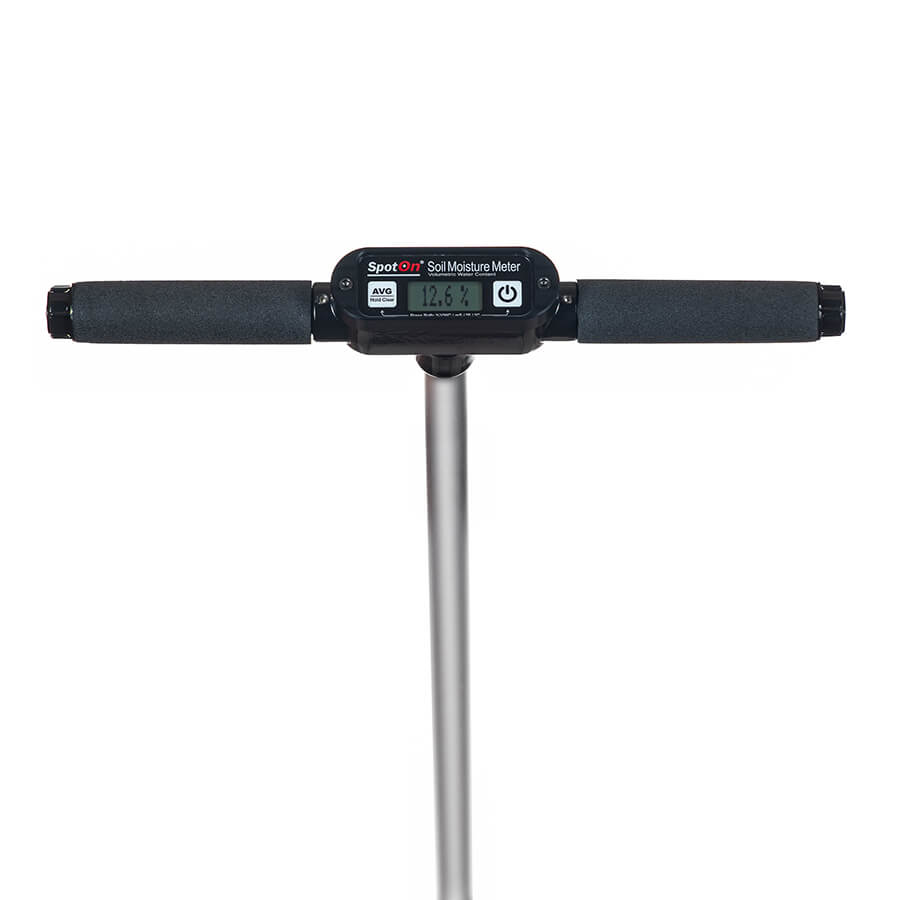The Scientific Research Behind Moisture Meters: Just How They Work and Why They're Vital
The Scientific Research Behind Moisture Meters: Just How They Work and Why They're Vital
Blog Article
The Ultimate Overview to Wetness Meters: A Comprehensive Introduction and Just How They Can Conserve You Money
Wetness meters offer as vital devices in finding and monitoring moisture material in products, aiding in avoiding expensive problems and ensuring the high quality of items. Recognizing the nuances of different kinds of dampness meters, their applications, and the potential cost-saving benefits they supply can be a game-changer for specialists and businesses alike.
Kinds Of Dampness Meters
One common type is the pin-type moisture meter, which measures the electric resistance in between 2 pins put right into a product. Pinless moisture meters, on the other hand, usage electro-magnetic sensing unit plates to check a larger area without causing damages to the material's surface area.

Infrared moisture meters gauge the thermal homes of a product to determine its wetness content non-invasively, making them helpful for applications where pin or pinless meters might not be suitable. Comprehending the various types of dampness meters offered can help sectors select the most appropriate device for their particular dampness measurement requirements.

Benefits of Making Use Of Moisture Meters
Wetness meters provide vital benefits in properly examining and checking dampness levels in varied products and settings. One of the main advantages of utilizing wetness meters is the prevention of potential damage created by excess dampness.
Moreover, utilizing moisture meters can bring about raised power efficiency. By identifying areas with high dampness levels, such as leakages or inadequate insulation, modifications can be made to boost power preservation and minimize utility prices. In farming setups, moisture meters play a crucial duty in enhancing crop returns by allowing farmers to check soil dampness degrees and make informed watering decisions. On the whole, the advantages of using dampness meters span across numerous markets, providing cost-efficient services and promoting far better top quality control methods.
Exactly How to Choose the Right Dampness Meter
Selecting the suitable wetness meter entails considering crucial factors such as material compatibility, measurement variety, and calibration precision. When picking a moisture meter, it's vital to make certain that the meter is suitable for the particular material you will be testing. Different materials have varying electrical residential or commercial properties that can impact wetness readings, so choosing a meter created for your product is critical for exact outcomes. In addition, consider the measurement series of the wetness meter. Guarantee that the meter can discover wetness degrees within the array needed for your applications. Calibration precision is an additional crucial aspect to maintain in mind. Select a dampness meter with dependable calibration to make sure specific and regular analyses. Some meters might call for periodic calibration modifications, so understanding the calibration process is very important. By very carefully evaluating these aspects, you can select a moisture meter that meets your requirements and offers accurate wetness dimensions for your jobs.
Appropriate Techniques for Wetness Meter Usage

Cost Savings With Dampness Meter Applications
How can the tactical use of dampness meters cause substantial price financial savings across various sectors? Dampness meters play a vital duty in expense savings by avoiding prospective damage and guaranteeing high quality control in different industries. In the agriculture market, moisture meters help in establishing the ideal time for gathering crops, preventing over-drying or excess dampness that can influence the end product's top quality. This exact monitoring aids farmers prevent unneeded losses and optimize their yield.
In a similar way, in construction, dampness meters help stop costly problems by spotting dampness levels in structure materials, such as wood or concrete, which can lead to architectural issues if not addressed without delay. By identifying issue areas at an early stage, contractors can take restorative measures to prevent considerable repair services or replacements, ultimately conserving money and time.
In addition, in the food processing market, wetness meters are vital for keeping track of item high quality and guaranteeing compliance with security policies. By accurately measuring moisture material in food items, manufacturers can avoid putridity, maintain quality, and minimize waste, look at this now leading to considerable price savings. Generally, the critical application of wetness meters is an important investment that can lead to substantial price decreases and enhanced efficiency across numerous markets.
Conclusion
In verdict, wetness meters are valuable tools for detecting and determining moisture levels in different materials. By using the ideal dampness meter and adhering to correct techniques, users can efficiently avoid costly problems caused by excess wetness. Spending in a high quality wetness meter can result in considerable price financial savings in the lengthy run by recognizing possible problems early and making it possible for timely remediation. Ultimately, wetness meters are important instruments for maintaining the stability and durability of frameworks and products.
Moisture meters offer as indispensable tools in detecting and checking moisture web content in materials, assisting in protecting against expensive damages you can check here and making sure the high quality of products. Infrared moisture meters measure the thermal homes of a material to identify its wetness web content non-invasively, making them helpful for applications where pin or pinless meters may not be suitable.Wetness meters offer indispensable benefits in properly analyzing and monitoring dampness degrees in diverse materials and settings. In agricultural setups, wetness meters play an important function in enhancing plant yields by making it possible for farmers to keep track of dirt wetness levels and make educated watering decisions.In final thought, dampness meters are valuable devices for spotting and measuring wetness levels in various products.
Report this page